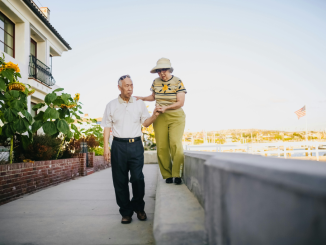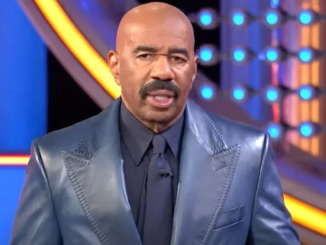Ever found yourself hesitating to ask a guest to remove their shoes, only to be told by someone, like your mother-in-law, that you’re being discourteous? You’re not alone! It’s a surprisingly polarizing topic that touches on cleanliness, cultural customs, and hosting etiquette. So, is it really rude to request this, or is it simply a matter of personal preference?
Understanding the Cultural Context of Shoe Removal

One of the biggest factors shaping opinions on this issue is culture. In many Asian and Scandinavian households, removing shoes is not just polite—it’s a must. It’s seen as a sign of respect and a way to keep homes clean and sacred. On the other hand, many Western cultures don’t place as much emphasis on this practice. Guests often keep their shoes on indoors, and requesting otherwise might be considered unusual.
Does this mean you shouldn’t ask guests to remove their shoes if it’s part of your household tradition? Absolutely not! The key is recognizing that cultural norms differ. Being aware of these differences can help you approach the topic in a way that’s both respectful and confident.
Health and Hygiene: The Case for Bare Floors
If you’ve ever looked at the bottom of a pair of shoes after a long day, you already know they’re not exactly clean. Shoes can track in dirt, bacteria, and allergens that could easily spread around your home. For families with small kids crawling on the floor or those with allergies, maintaining a shoe-free home can be a lifesaver.
Think about it: would you want the same shoes that trudged through public bathrooms or muddy sidewalks to stomp across your living room carpet? Probably not. Explaining this perspective to your guests can make your request feel less like an arbitrary rule and more like a thoughtful choice for the health of everyone in the household.
Does Hosting Etiquette Really Say No to Shoe Removal?
Traditional hosting etiquette often emphasizes guest comfort, suggesting that making guests feel at home should be your top priority. But modern etiquette acknowledges that it’s equally important to respect the host’s rules. After all, it’s your home, and you’re entitled to set boundaries.
The trick is finding a balance. Yes, you want your guests to feel comfortable, but you also want to feel comfortable in your own space. Asking guests to remove their shoes doesn’t have to be a big deal—it’s all about how you frame the request. Approach it with kindness, and most guests will happily comply.
Managing Family Dynamics: When Your Mother-in-Law Disagrees
Let’s face it: family dynamics can complicate even the simplest decisions. If your mother-in-law insists that asking guests to remove their shoes is “rude,” it can feel like you’re caught in the middle. So, how do you handle this without creating tension?
Start by having a calm conversation. Explain why this practice matters to you—whether it’s about cleanliness, cultural tradition, or personal preference. Acknowledge her perspective, but make it clear that this is a decision you’ve made for your home. Compromise can help here; for example, you could consider allowing exceptions for certain guests or occasions while sticking to your rule in everyday situations.
How to Politely Ask Guests to Remove Their Shoes
So, how do you actually ask someone to take their shoes off without sounding rude or awkward? It’s all about tone and preparation. Here are a few tips:
- Set the Tone Beforehand: If possible, let guests know about your shoe-free policy before they arrive. A simple mention in an invitation—like, “Feel free to bring comfy socks; we’re a shoe-free household!”—can go a long way.
- Provide Comfort: Make the transition easier by offering a designated shoe rack by the door and providing clean slippers or cozy socks for guests who might feel uncomfortable going barefoot.
- Use Polite Language: When guests arrive, frame the request as a preference rather than a demand. For example, “We usually ask everyone to leave their shoes at the door to keep things clean. Thanks so much!”
When you approach the topic with thoughtfulness, most people will appreciate your effort and won’t think twice about slipping off their shoes.
Balancing Tradition and Modern Practices
Incorporating traditions while respecting modern hosting practices can be a delicate dance. Traditional etiquette might emphasize catering to guests’ every need, but modern hosting often focuses on mutual respect and consideration. Striking the right balance means blending these approaches.
For instance, if you’re hosting a formal dinner party and you know some guests might find shoe removal awkward, consider making an exception for that event. But during casual gatherings or day-to-day visits, stick to your shoe-free rule. Flexibility shows thoughtfulness while still honoring your personal boundaries.
When Compromise Isn’t an Option
What if you have guests who outright refuse to take their shoes off, or your mother-in-law insists on overriding your rule? In these cases, it’s essential to stand your ground politely but firmly. Your home is your sanctuary, and maintaining its cleanliness and comfort is your right.

If someone disagrees, remind them that this isn’t about being “rude” or “discourteous.” It’s about creating an environment that works for your household. Offering alternatives—like slippers for those who prefer not to go barefoot—can help smooth over any discomfort.
Conclusion: Creating a Home That Reflects Your Values
Ultimately, asking guests to remove their shoes isn’t rude—it’s a reflection of your values and preferences. Whether you’re motivated by cleanliness, cultural tradition, or personal comfort, it’s entirely reasonable to expect guests to respect your house rules. The key is clear, kind communication and a willingness to accommodate others’ needs whenever possible.
At the end of the day, successful hosting isn’t about rigid adherence to etiquette or sacrificing your boundaries. It’s about creating an environment where both you and your guests feel respected and at ease. So, go ahead—ask politely, offer slippers, and enjoy a clean, happy home that truly feels like your own.
How to Use Baking Soda to Get Rid of Pests Naturally

Baking soda is a versatile and eco-friendly solution to combat pests like cockroaches, fleas, ants, moths, mice/rats, and spiders. It’s safe, non-toxic, and easy to use around the home. Here’s how you can effectively use baking soda to deal with each type of pest:
1. Cockroaches
Why It Works: Baking soda reacts with the acids in a cockroach’s stomach, killing them effectively.
How to Use:
- Mix equal parts baking soda and sugar in a shallow dish or sprinkle the mixture in areas where cockroaches are active.
- The sugar attracts them, and the baking soda does the rest.
- Place the bait near cracks, under sinks, or behind appliances.
2. Fleas
Why It Works: Baking soda dehydrates fleas and their eggs.
How to Use:
- Sprinkle baking soda liberally on carpets, pet bedding, and upholstery.
- Use a stiff brush to work it into the fibers, then leave it for several hours or overnight.
- Vacuum thoroughly to remove fleas, eggs, and baking soda residue.
- Repeat weekly for effective flea control.
3. Ants
Why It Works: Baking soda interferes with ants’ digestive systems when ingested.
How to Use:
- Mix equal parts baking soda and powdered sugar.
- Sprinkle the mixture along ant trails, near entry points, and around the kitchen.
- The sugar lures ants, while the baking soda disrupts their metabolism.
4. Moths
Why It Works: Baking soda absorbs moisture and odors that attract moths.
How to Use:
- Place sachets filled with baking soda and a few drops of essential oil (like lavender) in closets, drawers, or storage boxes.
- For extra protection, sprinkle baking soda on carpets and vacuum after a few hours to deter moth larvae.
5. Mice and Rats
Why It Works: Baking soda produces gas that rodents cannot expel, which eventually kills them.
How to Use:
- Combine baking soda with peanut butter or flour to make a bait.
- Place small portions in areas where you’ve noticed rodent activity, such as along walls or in hidden corners.
6. Spiders
Why It Works: Baking soda acts as a natural deterrent for spiders.
How to Use:
- Sprinkle baking soda around the perimeter of rooms, under furniture, or in dark corners where spiders hide.
- Alternatively, mix baking soda with a few drops of peppermint essential oil for enhanced spider repellence.
Additional Tips:
- Always reapply baking soda after cleaning or vacuuming to maintain its effectiveness.
- Combine baking soda with natural deterrents like vinegar, essential oils, or diatomaceous earth for stronger pest control.
- Monitor pest activity to determine if repeated treatments are necessary.
By using baking soda, you can keep your home pest-free without resorting to harmful chemicals. It’s a simple, cost-effective, and natural solution!




Leave a Reply